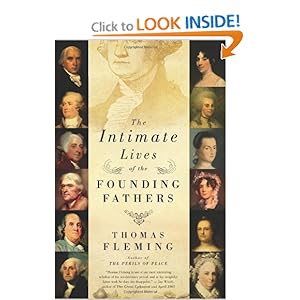Channelling George Washington: A Carnival of Buncombe
 “Do you know what buncombe means?”
“Do you know what buncombe means?”
“I believe it means nonsense. Didn’t the Sage of Baltimore, H.L. Mencken, call the politics of his day ‘A Carnival of Buncombe’?”
“I’m inclined to say the same thing about the politics of your time.”
“What makes you say that, Mr. President?”
“Mostly the Republican Party candidates’ endless debates. Those fellows are spouting more buncombe by the hour than any previous bunch of would-be presidents I’ve ever seen. Why do they do this, night after night?”
“I believe it has something to do with the idea of democracy.”
“Maybe that’s true. But it has nothing to do with the presidency. An ability to win a debate is not a qualification for a president. I never won a debate in my life. Neither did Andy Jackson, Jim Polk, Ronnie Reagan—the strong presidents. They didn’t debate. They acted.”
“How about Abe?”
“You’ve got me on Abe. He was a great debater. But he didn’t debate with anyone while he was saving the country from disunion. He just made decisions. Incredible decisions, thanks to his war-making powers. He proved the presidency is what Harry Truman claims it to be: the greatest office ever created by the human brain.”
“Let’s get back to today’s candidates.”
“I’ve got another beef: The media.”
“What do you see there?”
“Unbelievable brainlessness. Take Mitt Romney’s remark that he would bet ten thousand dollars he was right about a particular point. Ooooooo, gasped the reporters. Mitt said a bad word. He just admitted he was rich and being rich is bad because people hate the rich. Tons of hot air has been expelled on this supposed gaffe. Is this how to elect a president?”
“Is our current president doing better, in your opinion?”
“Not really. That speech Mr. Obama gave in Osawatomie, Kansas, was an overheated rant against the rich. It gave Teddy Roosevelt fits when I told him about it.”
“Why was Teddy was so bothered?”
“Barack gave Teddy credit for inspiring his speech, because Teddy spoke at Osawatomie launching his ill-considered losing run for the presidency on a third-party ticket in 1912. Teddy too ranted about the rich. But isn’t Barack aware that Teddy lost the election, repudiated that speech and spent the next (and last) seven years of his life trying to get back into the Republican Party? Talk about going out of your way to create bad omens!”
“Didn’t something else happen at Osawatomie? Something to do with John Brown?”
“I hadn’t thought of him. Another bad omen! Unless you think John Brown was a wonderful fellow, because he believed in murdering people in cold blood to end slavery.”
“Didn’t they call him Osawatomie Brown for a while?”
“Osawatomie was an anti-slavery settlement. Brown fought a battle with Missourians who didn’t want them on their border. But I’m thinking of what John Brown did to start the killing in Kansas. Hs took three or four of his sons and another follower or two and crept up on a nearby pro-slavery settlement on Potawatomie Creek. He hauled five unarmed men out of their cabins and hacked them to death with broadswords in front of their horrified wives and children.”
“Why did he do such a thing?”
“Brown thought that anyone who favored slavery deserved death—the bloodier the better.”
“Let’s hope that’s an omen that isn’t fulfilled.”
“It’s something a president should remember when he tilts toward class war.”
“What do you think of Newt Gingrich for president?”
“He reminds me of John Adams. Learned, combative. But he specializes at shooting himself in the foot. Do you remember what John Adams said when he was my vice president?”
“I remember it was embarrassing. What was it exactly?”
“Congress was just getting organized. We were launching the new government created by the Constitution. They asked John for advice on what the president should be called. He came up with: ‘His Highness, the President of the United States, and Protector of the Rights of Same.’ When Congress addressed the president, he recommended ‘Your Majesty.’ He thought the vice president should have the same titles.”
“Whew!”
“That’s exactly what Congress thought. They followed Jemmy Madison’s advice and chose ‘Mr. President.’ Some wit in the Senate thought Vice President Adams should be called ‘His Rotundity.’ Can’t you see Newt getting that sort of treatment one of these days?”
“I hope not. His intentions are noble.”
“That’s what they say hell is paved with. I’d like to see a candidate who says: ‘Let’s take men as they are, not as we wish them to be.’”
“I prefer: ‘To see this country happy is so much the wish of my soul, nothing else can compare to it this side of Elysium.’”
“You’ve topped me with that one. But I said that before I became president—and I realized the incredible complications of the job.”
“It’s still a great slogan, Mr. President.”
